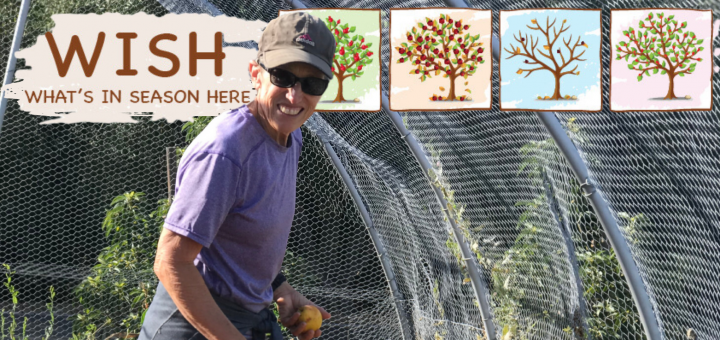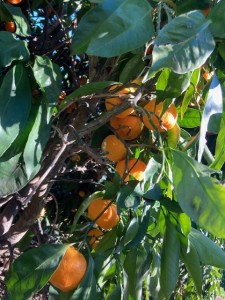And God said, “Let the earth sprout vegetation, plants yielding seed, and fruit trees bearing fruit in which is their seed, each according to its kind, on the earth.”
-Genesis 1:11
It’s the birthday of the trees! It arrives on the 15th day of Shevat in Israel and February 5– 6 here. In terms of importance, Tu B’Shvat is considered a minor Jewish holiday, although it is significant in the Torah as it pertains to agricultural laws.
Tu B’Shvat marks the beginning of the agricultural cycle for trees. In Israel, it ‘s basically the halfway point between fall and spring—the fruit trees are coming out of their dormancy and showing signs of blooms. Typically, the first tree to blossom there is the almond tree. It marks the beginning of the new fruit-bearing cycle of trees.
While my love for trees is without question, my dilemma with Tu B’Shvat is how it relates to us, here. We are still in the midst of winter with little sign of the trees coming out of their dormancy. So, how do we practice WISH: What’s In Season Here, and yet connect to the holiday?
For us in winter, it is a showcase of citrus fruits. More than 60 varieties of citrus exist in the world and here in the U.S. with warmer climates (CA/Arizona/Florida and Texas) is where citrus thrive. Citrus trees are fruit trees, but all fruit trees are not citrus… That’s especially important to know that during our Winter season, Citrus trees are evergreen, their leaves remain on the tree as opposed to those fruit trees that are now waking up (e.g. peach, apple, pomegranates, pears, apricots); these are deciduous, dropping their leaves in the fall, are dormant for a time before emerging in Spring.
As we prepare to celebrate Tu B’Shvat here, many activities are focused on trees and are expressions of Jewish values such as showing respect/kavod , to the trees and the earth, to practice hoda’ah/appreciation and to become a Shomrei Adamah/guardian of the earth. Another value, L’Dor v’ dor, from one generation of the next, is an example of how trees are planted now but won’t be immediately fruitful for years to come, meaning, we’re not just planting for ourselves but for generations to come.
Citrus trees are relatively easy to grow in one’s backyard or even in a container, provided it gets at least six hours of sun per day. They do require some citrus type of fertilizer and regular watering.
Our preschool will celebrate Tu B’Shvat with a WISH tasting of varieties of citrus on Tuesday, February 7, 8:30–9:30 AM with a complimentary coffee cart because coffee is always in season!
Enjoy this blessing of abundance of citrus, it’ll provide all the vitamin C needed in these cold winter months.
“Let us learn to appreciate there will be times when the trees will be bare, and look forward to the time when we may pick the fruit.”
–Anton Chekhov
Debbie Togliatti, Gardenista








Comments are moderated and will not appear immediately.